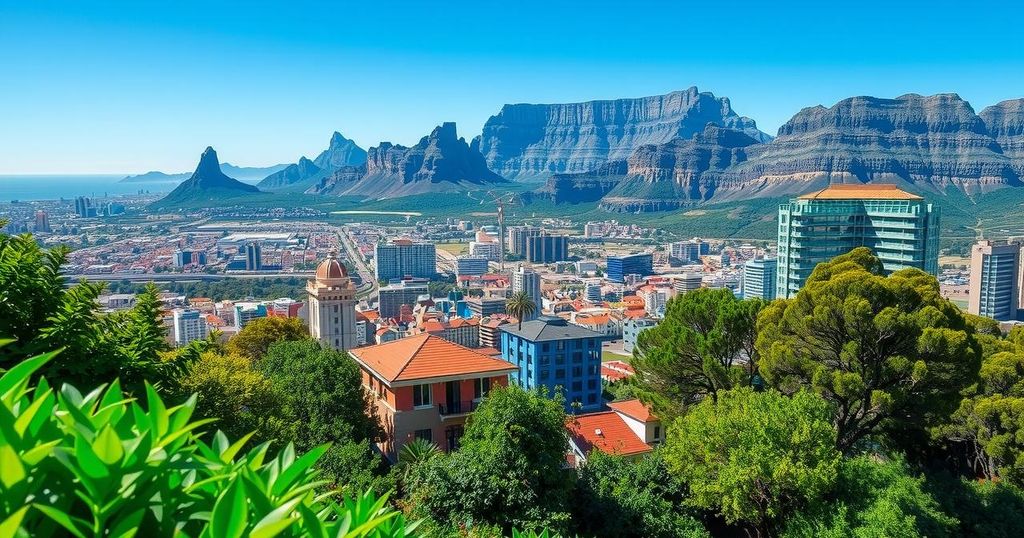Cape Town’s Anti-Tourism Movement: Dissent Against Digital Nomads

Cape Town is experiencing a rise in anti-tourism sentiment as activists express concerns regarding the influx of digital nomads, who are perceived to be driving up local living costs. Influencers and activists are uniting to voice their discontent, while officials, including the mayor, stress the need for balance in handling this situation. The issue reflects a broader trend of anti-tourism sentiment growing worldwide, particularly in Europe.
Cape Town has recently witnessed a surge in anti-tourism sentiment, particularly as local activists express discontent regarding the influx of digital nomads. These individuals, often from affluent nations, travel to immerse themselves in diverse cultures while benefiting from attractive climates. As authorities support this trend, local communities argue that such immigration has led to a rise in living costs, effectively pricing them out of their own homes.
A notable event, Nomad Week, organized by the city in partnership with Work Wanderers, has intensified the backlash. Activist group Dismantling the Ivory Tower criticized this initiative as ‘a celebration of displacement’ in a new form of colonization, using the metaphor of ‘booking apps instead of gunboats’ to highlight their disapproval.
This sentiment is echoed by South African influencer Naledi Mallela, who passionately urged digital nomads to refrain from visiting South Africa in a TikTok video. Mallela pointed out that while she welcomes their appreciation of her country, the influx of visitors has been accompanied by spikes in prices, thus affecting local affordability.
Cape Town’s mayor, Geordin Hill-Lewis, defended the presence of digital nomads, considering them beneficial to the local economy. He acknowledged, however, the necessity for a ‘level playing field’ to address the needs of local residents versus the growing number of remote workers occupying residential spaces as temporary accommodations.
An analysis by the United Nations World Tourism Organization (UNWTO) indicated a significant increase in the issuance of digital nomad visas globally since 2020. Nearly 45% of surveyed destinations now offer these visas, boosting interest in locations that can cater to remote workers. Nonetheless, the impact of this trend on local tourism still requires thorough evaluation.
Wider anti-tourism movements are emerging globally, particularly in Europe. Activists in Spain have announced aggressive protests against mass tourism, even physically blocking access to scenic locations. For example, demonstrators recently barricaded popular viewpoints in Ibiza and instigated vandalism against rental vehicles in Tenerife as part of their discontent with overwhelming tourist presence. This unrest reflects a growing frustration with mass tourism, which activists believe bears responsibility for escalating local living costs.
The evolving dynamics of tourism in Cape Town highlight a significant tension between the interests of digital nomads and local residents. Activists and influencers alike express concerns over rising costs that accompany visitor influxes, sparking broader anti-tourism sentiments. Governments are urged to find a balance that allows economic benefits from tourism while ensuring affordability and quality of life for local communities. This scenario mirrors similar global trends where local populations voice their discontent against mass tourism, leading to growing movements advocating for reduced tourist activity in various cities.
Original Source: www.dailymail.co.uk







